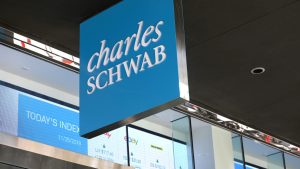Although 2021 was in many ways just as difficult as 2020 when the pandemic first hit the U.S., workers continued to save for retirement — and at record levels, according to a Fidelity Investments analysis of its fourth-quarter data released Thursday.
COVID-19 has not made it easy for many Americans, some of whom suffered from job loss, health issues and other changing personal circumstances.
The total number of IRAs, balances for 401(k) plans and contributions to retirement savings all hit highs in 2021, Fidelity found. “There has been a lot of uncertainty in the marketplace and despite all of that, we are seeing the benefits of the value of long-term focus and saving,” said Jason Jagatic, head of the workplace leadership team at Fidelity.
The results from Fidelity come on the heels of a strong year in the stock market, with the S&P 500
SPX,
gaining nearly 27% in 2021, the Nasdaq Composite
COMP,
up 21%, and the Dow Jones Industrial Average
DJIA,
up nearly 19%.
Young investors drove the number of IRA accounts to a record of 12.3 million, a 13% jump year over year, according to Fidelity. Generation Z investors saw the largest increase in IRA accounts, with 146% growth.
Employer-sponsored retirement accounts also saw numerous wins, such as the average 401(k) balance reaching $130,700 (also a record). Almost four in 10 individuals increased their 401(k) contributions in 2021 — another record, Fidelity said.
While not everyone has been able to rebound just yet, and many workers have switched jobs during the so-called Great Resignation last year, retirement savings behavior has remained positive, Fidelity found. When leaving a job, only 6% of workers cashed out their retirement assets, while 23% rolled that money into an IRA and 15% moved it to another employer’s plan. Another 18% left that money with their former employer and 22% said they planned to take action but hadn’t yet.
IRA account balances had an average of $135,600 in the fourth quarter of 2021, up from $128,100 during the same time in 2020; 403(b) plans saw a similar uptick, from $106,100 in the fourth quarter of 2020 to $115,100 in the fourth quarter of 2021.
Employers have also assisted in the push for retirement savings. A majority – 83% – of workers had employers make a contribution to their 401(k) plans on their behalf by the end of last year, and 75% of individuals said the same with a 403(b) plan. Companies are also paying more attention to the mental health and physical well-being, as well as the financial wellness, of their workers, Jagatic said.
Employers are also encouraging workers to save by automatically enrolling their new employees into 401(k) plans, and in some instances, with a higher contribution rate than before if they had already initiated auto-enrollment. Behavioral finance studies show that when automatically enrolled in a workplace plan, workers are more likely to stay invested and continue to contribute.
This post was originally published on Market Watch



